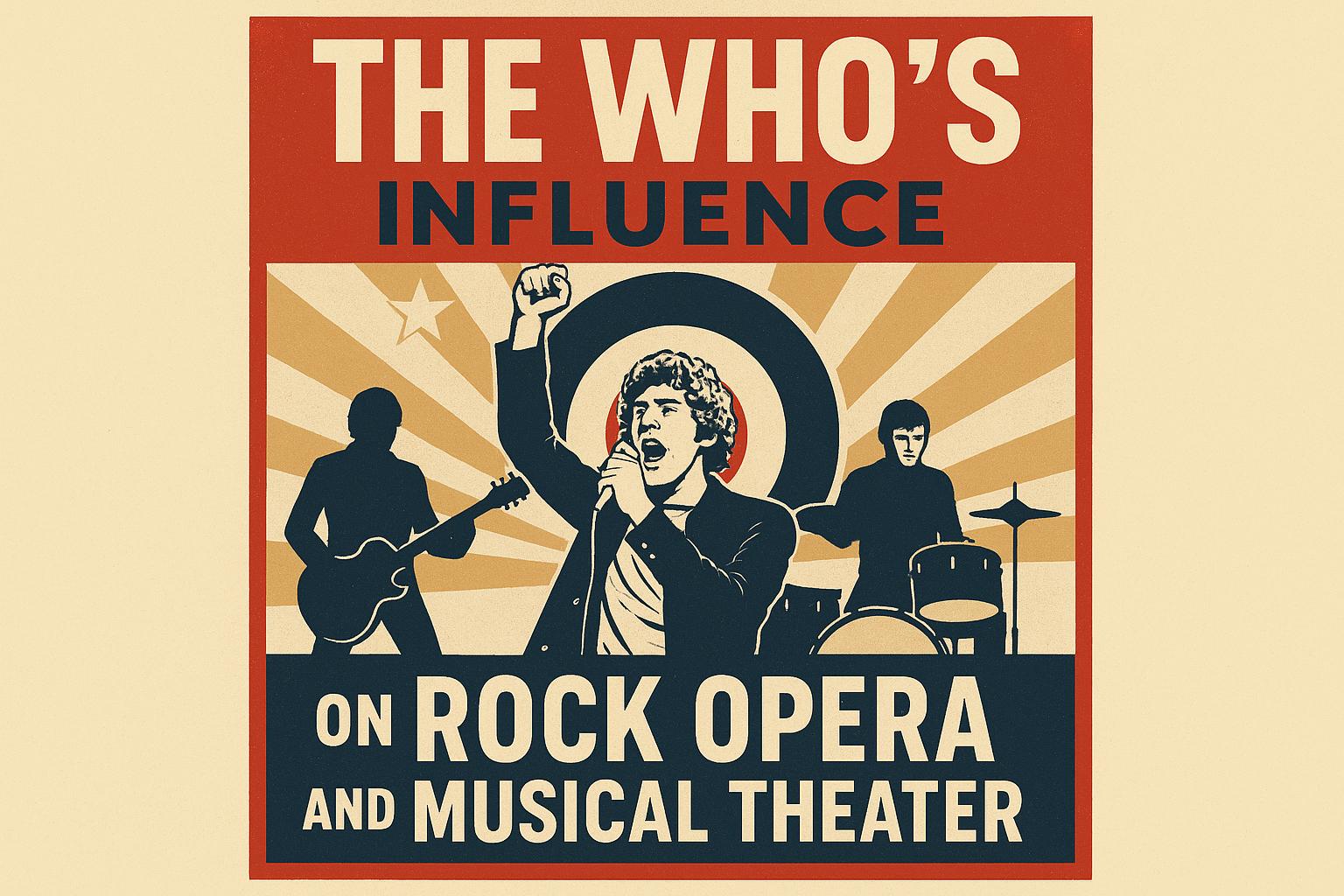The Who’s Contribution to Rock Opera
The Who, a British rock band emerging from the vibrant music scene of the early 1960s, made a monumental impact on the development of the rock opera genre. Their innovative combination of rock music and theatrical storytelling opened avenues for artists to delve into parallel creative quests, creating an ever-lasting influence on both music and performance art.
Origins and Early Works
The Who began their experimental journey with the concept of rock opera in the latter part of the 1960s, a time characterized by rapid musical experimentation and cultural transformation. Their 1969 album, Tommy, is frequently heralded as one of the pioneering examples of a rock opera. This ambitious and avant-garde work narrates the story of a ‘deaf, dumb, and blind kid’ who metamorphoses into a ‘pinball wizard’. It weaves complex themes of trauma, healing, and redemption, offering a narrative depth that was relatively novel for rock music at the time.
Tommy’s Impact
The release of Tommy represented a significant shift from the conventional rock album format, exhibiting The Who’s ability to create a seamless and cohesive narrative through their music. This album’s commercial success showcased that there was an appetite for such innovative storytelling amongst audiences. The triumph of Tommy emboldened other musicians and bands to experiment with the integration of conceptual and theatrical elements into their musical compositions.
The Who’s Influence on Musical Theater
The pioneering efforts of The Who in rock opera transcended the boundaries of rock music, leaving an indelible mark on the realm of musical theater. The narrative techniques and thematic breadth introduced in Tommy served as a bridge, blending the visceral intensity of rock music with the expressive, narrative-driven art form of theater.
From Stage to Screen
The resounding success of Tommy led to its adaptation into various mediums, including a film adaptation in 1975 and numerous stage productions. These adaptations not only expanded the audience for The Who’s music but also reinforced the fusion of rock music with theatrical performance, marking a significant cultural development. Through these adaptations, Tommy established a significant presence in both the rock and theater lexicons, further blurring the lines between these two forms of artistic expression.
Expanding the Genre
The adoption of the rock opera format opened up new avenues for artists to explore more intricate narrative structures and thematic complexities, which were generally uncharacteristic of traditional rock songs. This narrative-rich format paved the way for subsequent productions like Jesus Christ Superstar by Andrew Lloyd Webber and Tim Rice, which also fused the narrative sensibility of theater with the dynamic energies of rock music. Such productions marked the continued exploration and expansion of the rock opera genre, building upon the foundation laid by Tommy.
A Lasting Legacy
The Who’s innovative foray into the realm of rock opera left an enduring legacy, one that continues to inspire and influence artists across diverse musical and theatrical landscapes. By challenging and redefining the conventional boundaries of what a rock album could be, The Who not only revolutionized the music industry but also encouraged generations of creators to forge new paths and explore the potential of integrated musical storytelling. Their work has had a ripple effect, influencing not only the evolution of rock music but also enriching the narrative capacities of musical theater. This legacy is evident in the works of numerous artists who have taken inspiration from their groundbreaking synthesis of music and narrative.
For those interested in delving deeper into the impact of rock opera on music, albums like Pink Floyd’s The Wall and David Bowie’s Ziggy Stardust serve as notable examples of how this genre has continued to evolve and inspire. These works continue to celebrate the blend of narrative depth and musical innovation, embodying the enduring spirit that The Who’s groundbreaking endeavors helped to cultivate.
